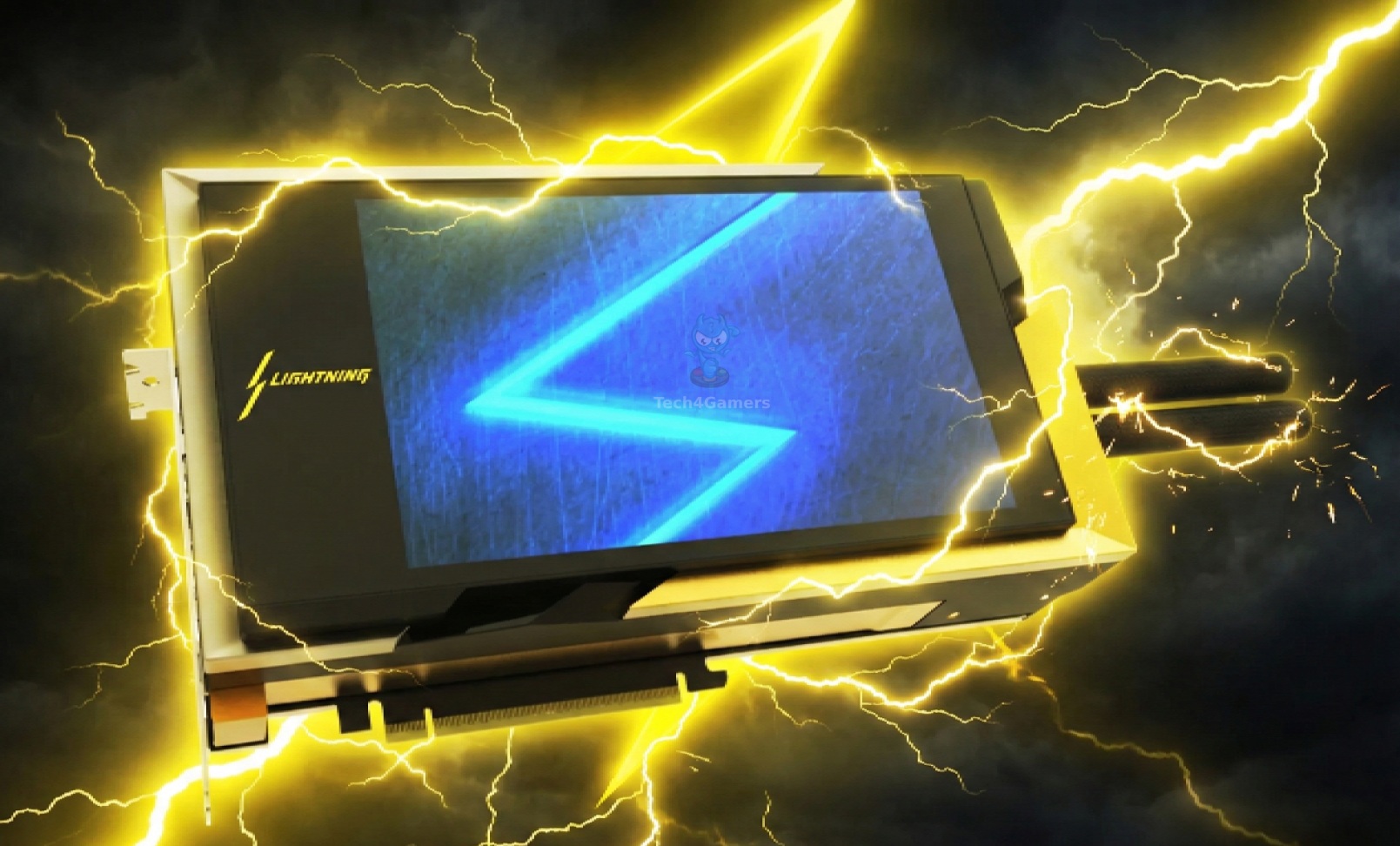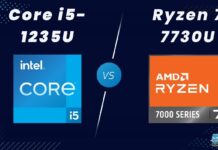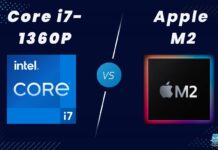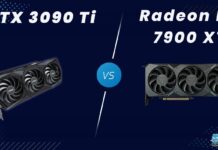Nvidia GeForce RTX 5080 Rated: 9/10 Nvidia GeForce RTX 4080 Rated: 7.7/10
Pros And Cons
| GPU | Pros | Cons |
|---|---|---|
| RTX 5080 | ✅ Equipped with PCIe 5.0 ✅ DLSS 4 with improved frame generation | ❌ Driver optimizations might take time |
| RTX 4080 | ✅ Very close performance in gaming & productivity ✅ Excellent 1440p card | ❌ Lags behind in AI-based applications |
- Compared to the RTX 4080, the RTX 5080 was 9.9% better in terms of 1440p gaming, and it displayed an 8.1% better performance in productivity.
- The RTX 5080 was 0.1% better in power efficiency, which doesn’t count because it is negligible. In terms of temperatures, the RTX 5080 was 8% more thermally efficient than the RTX 4080.
- Currently, the RTX 5080 is $728 cheaper than the RTX 4080. However, this price difference may fluctuate in the future due to scalpers, which could make the RTX 4080 cheaper.
- If the RTX 5080’s future price goes beyond the price of the RTX 4080, go with the RTX 4080. If it remains lower like it is now, then go for the RTX 5080.
Comparison Table
| Features | RTX 5080 | RTX 4080 |
|---|---|---|
| Slot Width | Dual-slot | Triple-slot |
| Release Date | Jan 30th, 2025 | Sep 20th, 2022 |
| Power Connectors | 1x 16-pin | 1x 16-pin |
| Shader Cores (CUDA) | 10752 | 9728 |
| TMUs | 336 | 304 |
| ROPs | 128 | 112 |
| Tensor Cores | 336 | 304 |
| RT Cores | 84 | 76 |
| Suggested PSU | 750W | 700W |
| Best Variants | - | Best RTX 4080 |
| Best CPU | - | Best CPUs For RTX 4080 |
| Best PSU | - | Best PSUs For RTX 4080 |
Architectural Difference
- Process Nodes: The RTX 4080 shares the same process node that the RTX 5080 uses, which is of a 5nm size and they are both from TSMC.
- Clock Speeds: The RTX 5080 has a base clock speed of 2295 MHz, which is slightly higher than the RTX 4080’s 2205 MHz. But, the RTX 5080’s 2617 MHz surpasses the RTX 4080’s boost clock of 2505 MHz.
- VRAM: Both the RTX 5080 and the RTX 4080 share the same VRAM of 16GB and a bus width of 256-bit. However, the RTX 5080 features GDDR7 memory, while the RTX 4080 uses GDDR6X.
- TDP: These two cards have almost identical TDP ratings. Where the RTX 5080 has a slightly higher TDP rating of 360W, whereas the RTX 4080 has a 320W TDP.
- Supported Technologies: RTX 5080 uses the newer DLSS 4, which is significantly better in frame generation and image upscaling when compared to the RTX 4080’s use of the older DLSS 3.
With the release of the new RTX 5080, people have been wondering how its predecessor, the RTX 4080, would hold up against it in terms of performance. So, in this article, we’ll compare the RTX 5080 vs RTX 4080 to see whether the RTX 4080 is still a better choice or if you should upgrade.
Gaming Benchmark – 1440p
We’ll start this extensive article with the gaming benchmarks first because the majority of people tend to use a GPU for gaming. We’ve decided to keep a few extremely demanding games as well, just to see how well these GPUs hold up under higher loads. Moreover, the settings have been kept to the max for all games.
Recommended Test Bench
- CPU – Ryzen 7 9800X3D
- Mobo – MSI MPG X670E Carbon WiFi
- RAM – 32 GB G. Skill Trident Z5 Neo RGB DDR5-6400 CL30
- Storage: Sabrent Rocket 4 Plus 1TB NVMe SSD
- CPU Cooler: be quiet! Dark Rock Pro 4
- Power Supply: Enermax PlatiGemini 1200W Platinum
- Operating System – Windows 11
Ghost Of Tsushima

- Right from the beginning, the RTX 5080 showed its edge because it obtained an average of 122 FPS over the RTX 4080’s 111 FPS. This makes for a 9.4% difference in performance.
- As for the 1% lows, the gap was wider because the RTX 5080 achieved an average of 102 FPS compared to the RTX 4080’s 79 FPS. This makes the RTX 5080 25.4% better in terms of the 1% lows.
Marvel’s Spider-Man 2

- In this game, we saw the RTX 5080 was slightly better in terms of the framerates because it averaged 72 FPS. Whereas the RTX 4080 performed quite nicely with its average of 66 FPS, making for an 8.7% difference.
- The RTX 5080 showed 11.2% smoother performance as it averaged 47 FPS in terms of the 1% lows. In contrast, the RTX 4080 displayed an average of 42 FPS, which was still great.
God Of War: Ragnarök

- Here, the RTX 5080 performed the closest to the RTX 4080, specifically 7.9% closer because it obtained an average of 171 FPS compared to the RTX 4080’s average of 158 FPS.
- The minimums on God Of War were in favor of the RTX 5080, as it averaged 137 FPS. Although, the RTX 4080 performed quite well with an average of 127 FPS, which makes for only a 7.6% margin.
Alan Wake 2

- On this extremely demanding game, both GPUs pushed hard, and the RTX 5080 managed to obtain an average of 35 FPS, whereas the RTX 4080 was only 12.1% behind with its average of 31 FPS.
- In terms of the 1% lows, the difference was only 7.4%, as the RTX 5080 averaged 28 FPS while the RTX 4080 achieved an average of 26 FPS. Altogether, this difference is insignificant.
Cyberpunk 2077

- We observed that the RTX 5080 performed with an average of 70 FPS, which reigned supreme over the RTX 4080’s average of 62 FPS. This results in a performance difference of 12.1%.
- Regarding the 1% lows, the RTX 5080 had smoother dips as it obtained an average of 52 FPS. On the contrary, the RTX 4080 was only 14.4% behind with its average of 45 FPS.
S.T.A.L.K.E.R. 2

- Here, the performance difference was brought down to a 9.6% achieved by the the RTX 5080 since it averaged 87 FPS. Meanwhile, the RTX 4080 performed with an average of 79 FPS.
- The RTX 5080 had an 11.4% edge when it comes to the 1% lows because it averaged 65 FPS, which was higher than the RTX 4080’s average of 58 FPS.
Black Myth: Wukong

- A 10% margin was achieved by the RTX 5080 on Black Myth: Wukong due to its average of 63 FPS. At the same time, the RTX 4080 couldn’t reach the 60 FPS mark, as it obtained an average of 57 FPS.
- The 1% lows were a bit different because the RTX 5080 performed 18.2% better, as it obtained an average of 54 FPS. Whereas the RTX 4080 had framerates dipping to 45 FPS.
Silent Hill 2

- On Silent Hill 2, we saw the RTX 5080 showcased an average of 88 FPS, which was 13.3% better in terms of performance when compared to the RTX 4080’s average of 77 FPS.
- The RTX 5080 had the same 1% low FPS as the RTX 4080’s average FPS, specifically 77 FPS. On the other hand, the RTX 4080 was 26.5% behind with its average of 59 FPS, which is the highest gap for 1% lows.
Productivity Benchmarks
Gaming benchmarks are one way to check the performance of a graphics card, and the next best way to test them is usually through productivity-related software. So, we’ll do you a favor and show you the performance of these two GPUs in terms of video editing and rendering.
Adobe Premiere Pro

- On Adobe Premiere Pro, both GPUs had only a slight difference of 5.7% because the RTX 5080 achieved a score of 10,750 while the RTX 4080 was still up with 10,156 points.
DaVinci Resolve Studio

- However, the RTX 5080 performed better while editing on the DaVinci Resolve Studio with its score of 11,688, which was 9.6% higher than the RTX 4080’s score of 10,621.
Blender

- While rendering on Blender, the RTX 5080 obtained a score of 9,410. Simultaneously, the RTX 4080 was 9% behind because it acquired a score of 8,602.
Overall Performance
| Graphic Cards | RTX 5080 | RTX 4080 |
|---|---|---|
| Average FPS | 📈88.5 | 📈80.1 |
| 1% Lows | 📉70.3 | 📉60.1 |
| Productivity (Rating) | ✏️7/10 | ✏️6.5/10 |
| Winner: Nvidia GeForce RTX 5080 | ||
Average Framerate
In terms of the average FPS, we calculated that the RTX 5080 was 9.9% better than the RTX 4080 in eight of the tested games. It was also the better 1440p card because it exceeded 60 FPS in almost every game, while the RTX 4080 hovered around the 60 FPS mark in three games.
1% Lows:
As for the 1% lows, the RTX 5080 was again the victor. This is because it showed better dips. Specifically, it had FPS dropping below 60 FPS in only three games, while the RTX 4080 fell below the 60 FPS point in six games, which makes the RTX 5080 15.5% smoother than the RTX 4080.
Productivity:
In terms of productivity, the RTX 5080 performed around 8.1% better than the RTX 4080. It was better when it came to rendering in Blender and editing normal videos and motion graphics in DaVinci Studio. However, the RTX 4080 performed quite similarly when editing on Premiere Pro.
Average Power Consumption
| Game | RTX 5080 | RTX 4080 |
|---|---|---|
| Ghost Of Tsushima | 266 | 244 |
| Marvel's Spider-Man 2 | 167 | 214 |
| God Of War: Ragnarök | 252 | 250 |
| Alan Wake 2 | 289 | 275 |
| Cyberpunk 2077 | 287 | 267 |
| S.T.A.L.K.E.R. 2 | 220 | 225 |
| Black Myth: Wukong | 243 | 239 |
| Silent Hill 2 | 226 | 238 |
| Average Power Draw | 243.8⚡ | 244⚡ |
| Winner: Nvidia's GeForce RTX 5080 |
After rechecking our calculations, we were shocked to see the result because the difference was oddly small. We saw that the difference in the power consumption between the RTX 5080 and the RTX 4080 was merely 0.1%. This difference achieved by the RTX 5080 isn’t only insignificant but it’s also negligible.
Average Thermal Statistics
| Game | RTX 5080 | RTX 4080 |
|---|---|---|
| Ghost Of Tsushima | 52 | 53 |
| Marvel's Spider-Man 2 | 44 | 53 |
| God Of War: Ragnarök | 51 | 53 |
| Alan Wake 2 | 52 | 55 |
| Cyberpunk 2077 | 53 | 55 |
| S.T.A.L.K.E.R. 2 | 49 | 53 |
| Black Myth: Wukong | 49 | 55 |
| Silent Hill 2 | 48 | 54 |
| Average Temperatures | 49.8🌡️ | 53.9🌡️ |
| Winner: Nvidia's GeForce RTX 5080 |
As for the temperatures, we obtained a true tangible value. We observed that the RTX 5080 operated at lower temperatures than the RTX 4080; it specifically remained 8% cooler than its predecessor. Still, it isn’t much of a difference because the margin between the two GPUs isn’t concerningly high.
Pricing And Availability
| GPU | RTX 5080 | RTX 4080 | Price Difference |
|---|---|---|---|
| Launch MSRP | 💲999 | 💲1199 | 18.2% |
| Current Price | 💲1354 | 💲2082 | 42.4% |
As for now, the RTX 5080 is around $728 cheaper than the RTX 4080. The price of most recently released GPUs usually skyrockets shortly after their release, and this could very well be the case for the RTX 5080 because of scalpers. So, be sure to check the prices before making a decision.
Final Verdict—What We Recommend?
RTX 4080: This is a phenomenal card that offers great performance. The price-to-performance ratio it offers is also remarkable. People started valuing their RTX 4080 more after the RTX 5080’s release because they realised how big of a shift the RTX 4080 had compared to the RTX 4070, which the RTX 5080 lacked.
RTX 5080: Even though it checked all the boxes that we usually test, it has crushed our expectations. The performance difference it showed when compared to the RTX 4080 was so small despite it being a new card from the 80 series. Yes, there is an addition of AI but it could’ve had a larger difference overall.
Choosing one card from the two depends on where the RTX 5080’s price will land. We suggest you get the RTX 5080 if its future price remains lower than the cost of the RTX 4080. However, if the RTX 5080’s price goes comparatively higher, we recommend you get the RTX 4080 since it becomes a better option automatically.
The RTX 5080 uses the newer Blackwell GPU architecture, which is better than Ada-Lovelace-based RTX 4080 because it offers improved ray tracing performance & efficiency. Yes, the RTX 5080 uses next-gen tensor cores that are more focused on AI and better for upscaling and video processing. The RTX 5080’s use of next-gen RT and tensor cores helps in providing an improved AI-driven rendering for various software. The RTX 5080 supports the newer display port 2.1, which is not present in the RTX 4080. This port allows for higher refresh rates at 8K displays. The RTX 5080 uses PCIe 5.0, which allows for higher data transfers. In contrast, the RTX 4080 comes with PCIe 4.0.FAQs
More From RTX 5080 More From RTX 4080
Thank you! Please share your positive feedback. 🔋
How could we improve this post? Please Help us. 😔
[Comparisons Specialist]
I’m a passionate computer hardware expert specializing in CPUs and GPUs. With a lifelong curiosity for hardware and extensive hands-on experience, I provide valuable insights, practical advice, and in-depth analysis on these components. Engaging with the hardware community, I exchange knowledge and stay at the forefront of technological advancements.
Get In Touch: uzair@tech4gamers.com








